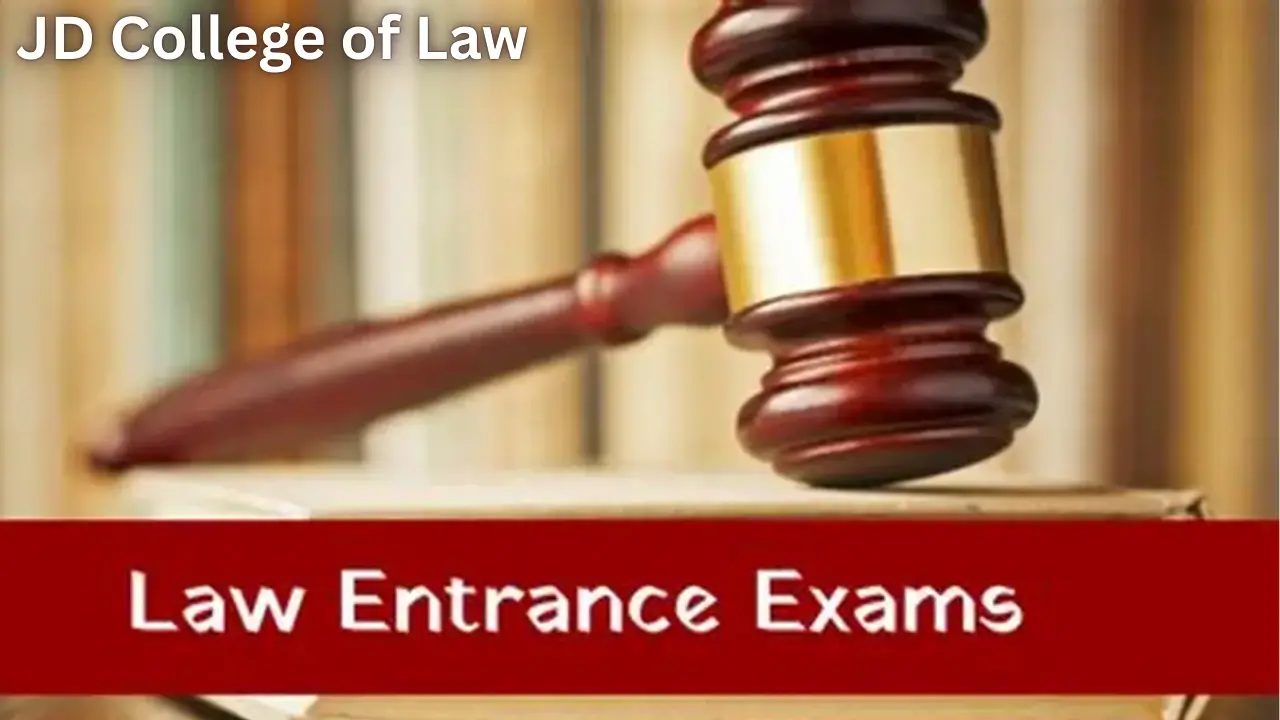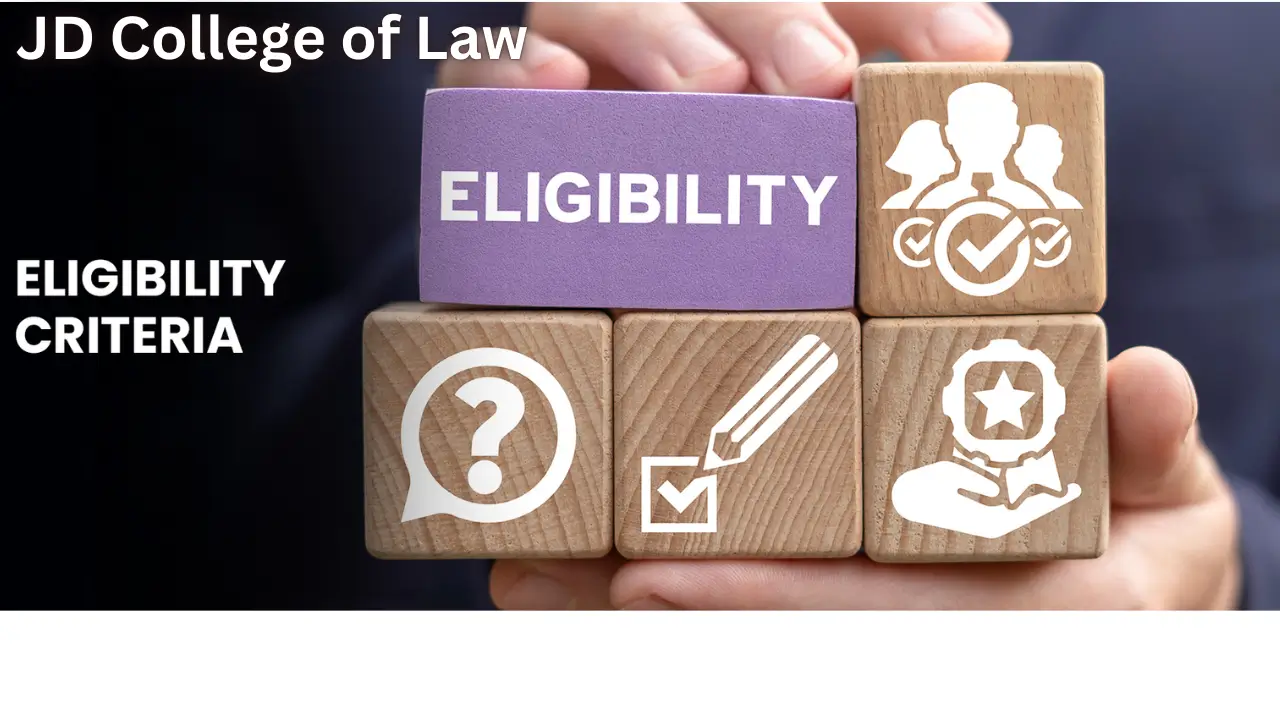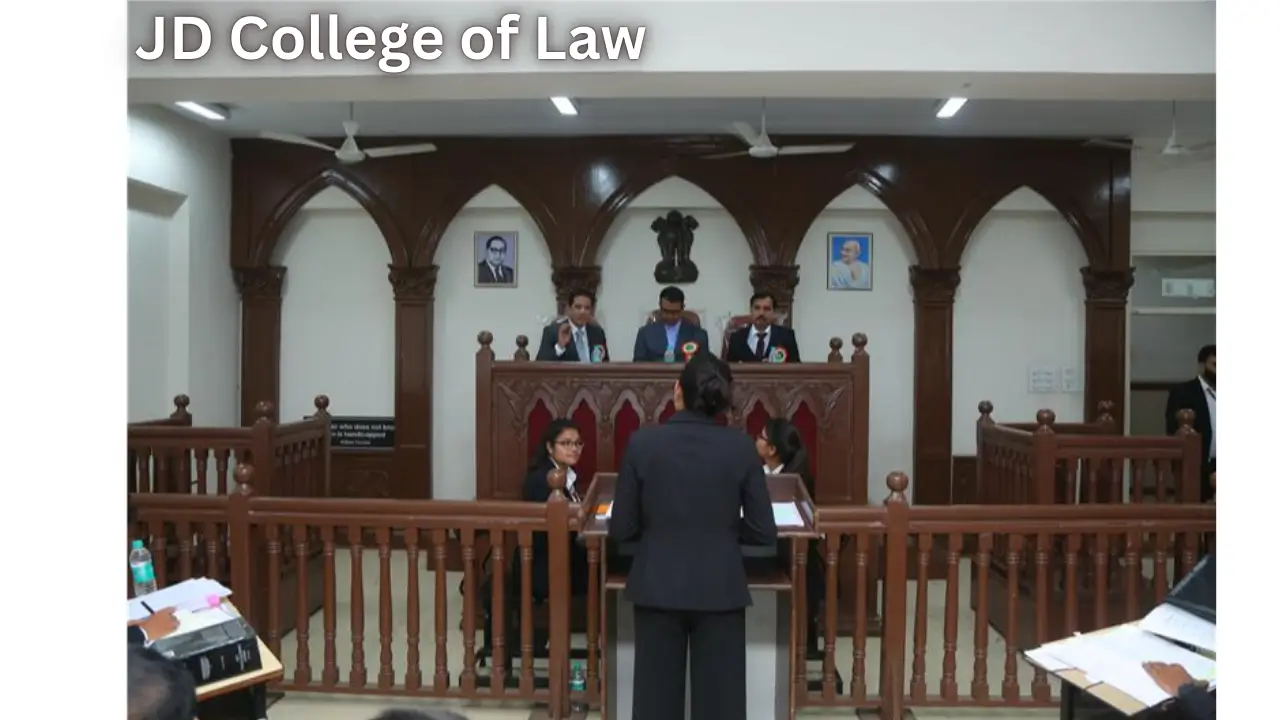Applying for admission to the JD (Juris Doctor) program at a law college can be a detailed process involving several steps, including standardized testing, application submission, and document verification. While each law college may have specific requirements, the general process shares common elements.
This article outlines the typical steps, requirements, and latest updates one should be aware of when seeking admission to a JD College of Law.
Key Steps to Apply for JD Admission
1. Eligibility and Prerequisites
- Candidates must have completed an undergraduate degree (Bachelor’s degree) from a recognized university.
- Certain minimum academic standards may apply, e.g., minimum percentage or GPA requirements.
- Some colleges also accept students based on qualifying entrance exams like the LSAT or GRE.
2. Standardized Tests
- Most law schools require either the Law School Admission Test (LSAT) or the Graduate Record Examination (GRE).
- Only one of these tests is generally required, not both.
- Score validity often ranges around five years.
- GRE scores may require separate submission through Educational Testing Service (ETS).
3. Registration with Credential Assembly Service (CAS)
- Applicants need to register with the CAS provided by the Law School Admission Council (LSAC).
- The CAS compiles transcripts, LSAT scores, recommendations, and other documents into a law school report forwarded to colleges.
- Keeping the CAS file complete and updated is crucial.
4. Application Submission
- Applications are typically submitted online, often through the LSAC’s JD Application Service.
- Application fees may vary, commonly around $30-$50, with provisions for fee waivers in some cases.
- Submission deadlines can be rolling but priority deadlines may apply (e.g., March 15 for fall admissions).
5. Supporting Documents
- Official transcripts from all post-secondary institutions attended.
- Letters of recommendation, usually two or more, submitted via CAS.
- A personal statement or essay articulating goals, motivations, and experiences.
- Resume detailing work experience, extracurricular activities, and community involvement.
6. Admission Decisions and Notifications
- Many law colleges evaluate applications on a rolling admissions basis.
- Priority applicants receive decisions earlier.
- Some schools hold admitted student open houses or require deposits to confirm enrollment.
Table: Typical JD Admission Timeline (Example for Fall Intake)
| Timeline Event | Date Range |
|---|---|
| Application Opens | September 1 |
| Priority Application Deadline | March 15 |
| Final Application Deadline | July 31 |
| Admission Decisions Begin | October onwards |
| Enrollment Confirmation Deadline | Varies by school |
Recent Updates in JD Admissions (2025)
- Some law colleges have started accepting GRE scores as an alternative to LSAT for wider applicant accessibility.
- Online application platforms provide better integration with CAS for smoother submission of documents.
- Fee waivers have become more accessible for eligible candidates.
- Many schools emphasize holistic review processes considering diversity, background, life experiences, and professional skills alongside academic metrics.
- Due to processing times, submitting GRE scores early is advised as it can take 4-6 weeks for official scores to be processed.
Tips for a Successful Application
- Register early with LSAC and complete the CAS profile promptly.
- Prepare and take the LSAT or GRE well ahead of application deadlines.
- Request official transcripts early to avoid delays.
- Choose recommenders who know your academic or professional capabilities well.
- Write a clear, focused personal statement that highlights your unique qualifications and goals.
- Keep track of all deadlines and communicate promptly with the admissions office if needed.
Summary
Applying to a JD College of Law in 2025 involves a structured yet navigable process largely coordinated through the LSAC and its Credential Assembly Service. Meeting eligibility requirements, submitting standardized test scores, carefully compiling application documents, and adhering to deadlines are all essential parts of gaining admission. Staying updated with changes like GRE acceptance, fee waiver availability, and holistic review policies will help applicants maximize their chances.
Prospective law students should plan well ahead, maintain organized records, and take advantage of resources available at law schools and LSAC to ensure a smooth and successful JD application experience.












